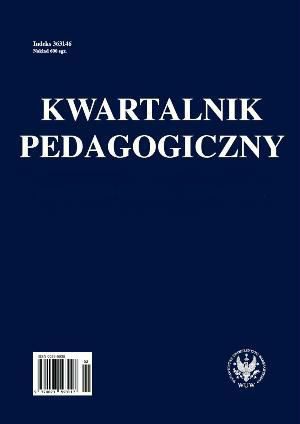PEDAGOGICZNE PARADOKSY JĘZYKOZNAWSTWA
PEDAGOGICAL PARADOXES OF LINGUISTICS
Author(s): Andrzej BogusławskiSubject(s): Education
Published by: Wydawnictwa Uniwersytetu Warszawskiego
Keywords: pedagogika; nauka; językoznawstwo; język;
Summary/Abstract: investigations of language may be particularly weighty in pedagogical activities. The point of departure in this reflection is a definition of science (as activity). The definition reads: science is a systematic, publicly relevant cognitive valuation of expressions. From the standpoint of this definition any research whose object is language is ensured recognition as valid part of science. The "pedagogical paradox" of linguistics lies in the fact that the overwhelming majority of what is being done in linguistic research does not have a really substantial and indispensable place in justifiably important pedagogical activities. Apart from pathological cases, everyone is in full command of their mother tongue. Polish is very uniform, so there is no question of evening up regional differences in speech. Linguistic theories are also of little value where undeniable advantages can be pursued, such as those deriving from exercises in higher, e.g. rhetorical, areas of language use. Advantages in general education offered by science of language are questionable because theories of language as well as theoretical grammatical works either present knowledge a priori which people are in possession of anyway or are far from being mature. Linguistics can find its most effective public justification in offering assistance to the process of practical acquisition of foreign languages which really affects the masses. The author illustrates this claim with the example of teaching the Russian language.
Journal: Kwartalnik Pedagogiczny
- Issue Year: 206/2006
- Issue No: 4
- Page Range: 13-25
- Page Count: 13
- Language: Polish
- Content File-PDF

